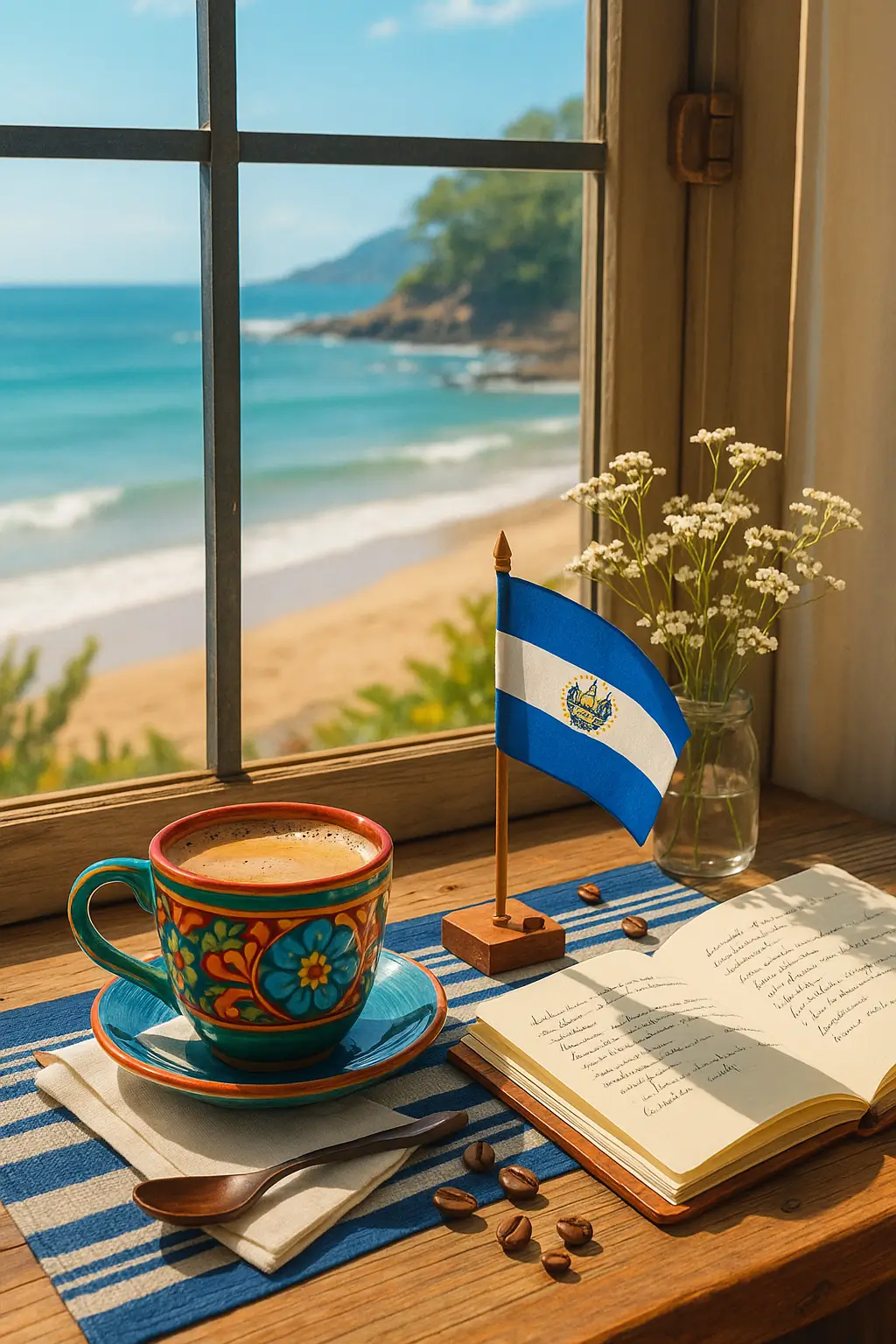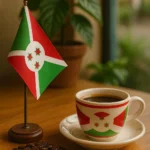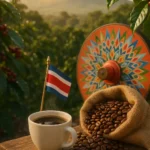El Salvador coffee offers a unique, balanced characteristic in the world of specialty beverages. You’ll typically find a soft, sweet profile. A gentle, bright acidity complements it. Its great reputation earned it the cherished nickname “el Grano de Oro,” meaning “the grain of gold.” This guide explores its distinct flavor, prime growing regions, key varietals, influential processing methods, and rich history.
- What is the flavor profile of El Salvador coffee?
- What are the premier coffee varietals of El Salvador?
- What are El Salvador’s ideal coffee growing regions?
- How do processing methods impact the flavor of El Salvador coffee?
- What is the rich history and economic significance of El Salvador coffee?
- What makes El Salvador coffee a prized specialty coffee?
What is the flavor profile of El Salvador coffee?
El Salvador coffee stands out for its balance and notable sweetness. This balance makes it a sought-after choice for coffee drinkers everywhere. Its distinct taste and aroma capture the essence of its volcanic origins and careful cultivation. You often detect a sweet, honey-like sweetness, vibrant citrus notes, especially tangerine, and comforting chocolate undertones. Floral and fruity elements also mark this remarkable drink.
Regional variations make the taste experience even richer. For example, coffees from the Santa Ana region often have rich, full-bodied flavors. You find notes of dark chocolate, caramel, and distinct nutty undertones. The aroma often complements these flavors, with sweet, fruity, floral, and spicy elements. This creates a full sensory experience.
El Salvador coffee consistently delivers a harmonious cup. Sweetness and a gentle acidity dance together. This makes it an accessible yet complex choice for any coffee lover. The interplay of honey, citrus, and chocolate truly sets it apart.
What are the body and acidity of El Salvador coffee?
El Salvador coffee typically has a body that ranges from round to full. This gives you a satisfying mouthfeel. Its acidity is generally bright but gentle or mild. This softer acidity sets it apart from many other Central American coffees. Those often feature a more pronounced tartness.
What are the premier coffee varietals of El Salvador?
The premier coffee varietals of El Salvador are primarily Bourbon, Pacas, and Pacamara. These three contribute much to the coffee’s distinct cup characteristics. Understanding each varietal helps explain the diverse flavors you find in Salvadoran coffee. Other varietals also contribute to El Salvador coffee production. These include Catuaí and Cuscatleco. While less common, these varieties still play a role in the overall diversity of Salvadoran coffee offerings.
- Bourbon: This varietal makes up over half of El Salvador’s entire coffee crops. Growers value Bourbon for its sweetness, balanced body, and bright acidity. Its flavor profile consistently offers notes of caramel, chocolate, and various fruits. These qualities ensure a consistently excellent cup profile for a large portion of the country’s coffee output.
- Pacas: This is a natural mutation of the Bourbon varietal. It is known for producing coffee with a rich aroma and bright acidity. It adds another layer of complexity to the country’s coffee.
- Pacamara: This is a hybrid varietal developed in El Salvador. It comes from crossing Pacas and Maragogipe varietals. Pacamara beans are large. This coffee is known for its complexity, bright acidity, and sweetness. You get intense floral and fruity aromas, a full body, and notes of chocolate and honey. This varietal shows El Salvador’s innovation in coffee breeding.
What are El Salvador’s ideal coffee growing regions?
El Salvador’s ideal coffee growing regions are primarily the Apaneca-Ilamatepec Mountain Range, the Central Belt/El Básalmo-Quezaltepec Mountain Range, and the Tecapa-Chinchontepec Mountain Range. These areas combine environmental factors perfect for growing high-quality coffee. These factors include:
- Specific altitudes,
- Fertile volcanic soil,
- Cool and humid climates,
- Abundant rainfall.
Where is the Apaneca-Ilamatepec Mountain Range for El Salvador coffee?
The Apaneca-Ilamatepec Mountain Range, in western El Salvador, is a top region for El Salvador coffee cultivation. This range spans from 500 meters up to 2,365 meters high. Its fertile volcanic soil provides essential nutrients for coffee plants. This region is a Denomination of Origin area for Salvadoran coffee. The Santa Ana volcano enhances its unique soil composition and microclimates. This environment contributes directly to the coffee’s distinct qualities.
What is the Central Belt/El Básalmo-Quezaltepec region for El Salvador coffee?
The Central Belt, or the El Básalmo-Quezaltepec Mountain Range, is another key region for El Salvador coffee. This area features altitudes from 500 to 1,900 meters. Volcanic soils from the San Salvador volcano dominate its terrain. The climate is stable and mild, with good rainfall. These consistent conditions help create rich coffee flavors. Its microclimates offer great growing conditions for coffee plants.
What is the Tecapa-Chinchontepec Mountain Range for El Salvador coffee?
The Tecapa-Chinchontepec Mountain Range is important for El Salvador coffee production. This region ranges from 500 to 2,000 meters high. It is the country’s third-largest coffee-producing area. The Tecapa-Chinchontepec range features the San Miguel (Chaparrastique) volcano. This volcano enriches the soil, giving the coffee distinct flavors. Its consistent output makes it vital to the national coffee industry.
Are there other notable zones for El Salvador coffee?
Yes, several other zones contribute to El Salvador coffee. These include Ahuachapán, Chalatenango, La Libertad, Santa Ana, San Salvador, and Morazán. All share the ideal growing conditions. They benefit from cool, humid climates and nutrient-rich volcanic soils. These factors ensure consistent quality and flavors across diverse locations. Such conditions are key for specialty coffee.
What is the role of volcanic soil and climate in El Salvador coffee quality?
Volcanic soil and climate play a key role in the quality of El Salvador coffee. Volcanic soil covers about 90% of the coffee-growing areas. It provides organic matter and vital nutrients. This rich soil helps coffee plants grow healthy, producing strong cherries. Cool, humid climates and plenty of rain create ideal conditions for high-quality coffee. Over 60% of El Salvador coffee grows at high altitudes, shaded by forests on mountain slopes. This high-altitude growth keeps moisture, slows bean maturation, and improves bean quality.
How do processing methods impact the flavor of El Salvador coffee?
Processing methods change the final flavor profile of El Salvador coffee. Each method changes the coffee’s body, acidity, and aroma. Producers choose these techniques to highlight specific bean traits.
| Processing Method | Key Characteristics | Flavor Profile |
|---|---|---|
| Washed Process | Removes fruit pulp before drying. | Lighter body, cleaner, crisp. Accentuates bright acidity and clarity. Delicate, refreshing. Notes of sweet citrus (tangerine), bright floral tones, clear chocolate. |
| Natural Process | Dries entire coffee cherry with fruit intact. | Fuller, heavier body, syrupy mouthfeel. Rich, complex, fruit-driven. Lingering sweetness. Less common in El Salvador but results in intense fruitiness. |
| Honey Process | Removes outer skin, leaves sticky mucilage during drying. | Balanced sweetness, medium body. Combines clarity of washed with fruity richness of natural. Smooth texture. Flavors like biting into a sweet apple: juicy, robust, complex. Degree of mucilage (yellow, red, black) affects sweetness, fruitiness, body. |
What is the rich history and economic significance of El Salvador coffee?
The history and economic significance of El Salvador coffee are deep. It traces coffee’s journey from its introduction to becoming the country’s economic backbone. Coffee shaped El Salvador’s identity and development for centuries. Its impact goes beyond economics, touching social and cultural life.
How did El Salvador coffee transition from introduction to primary export?
El Salvador coffee came to El Salvador in the 1700s, from Guatemala. At first, people grew coffee for their own use. By the mid-1800s, everything changed. It quickly became the country’s main export and economic driver. Government incentives drove this rapid growth. Tax exemptions on coffee production, starting in 1846, helped a lot. Coffee workers were also exempt from military service. New producers got rid of export duties. These steps boosted growth. These moves shifted El Salvador’s economy from indigo, its main export before, to coffee. Coffee became king.
The rise of El Salvador coffee from a minor crop to the “grain of gold” shows the power of agricultural policy combined with ideal natural conditions. It truly transformed the nation.
What is “el Grano de Oro” and its economic and social impact on El Salvador coffee?
The term “el Grano de Oro” (the grain of gold) means the deep economic and social impact of El Salvador coffee. The coffee sector historically generated over 50% of El Salvador’s export revenues. This shows its huge importance to national income and growth. This industry shaped the country’s development.
The coffee industry sparked social and infrastructure development. It changed land ownership and brought indigenous communities into the growing economy. Coffee production also spurred building roads and railways. These helped exports. El Salvador did not have much external technical or financial support like some neighbors. Yet, it became a remarkably efficient coffee producer. Large plantations showed yields per hectare consistently increased with size. This is rare in agriculture. The coffee industry remains a cultural and economic cornerstone. It represents resilience and tradition from the 1800s to today.
What makes El Salvador coffee a prized specialty coffee?
El Salvador coffee is a prized specialty coffee due to a unique mix of traits. Its key features include consistent balance, mild but bright acidity, and diverse flavors. These qualities stem from the country’s rich history. This coffee offers exceptional taste and deep heritage. It stands out in the global market. Its journey from “el Grano de Oro” to a celebrated specialty drink shows its lasting legacy. Explore our selection of premium El Salvador coffees today and discover your favorite varietal or processing method!









